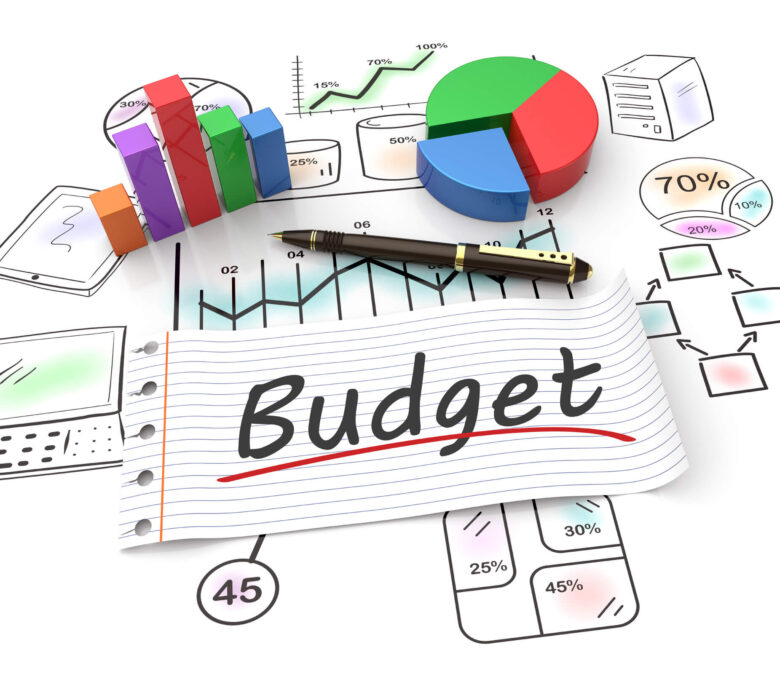Creating a personal budget is one of the most important things you can do to stay on top of your finances and achieve your financial goals. When you create a budget, you can see where your money is going, plan for future expenses, and save for situations or important events in your life. By taking control of your money, you can reduce stress and gain more confidence in your ability to manage it. Creating a budget isn’t just about limiting your spending; it’s also about creating a plan to get out of debt and have the freedom to spend your money freely.
1. Take a Look at Your Financial Situation
Before you create a personal budget, you need to take a look at your current financial situation. First, gather all of your financial documents. These can be bills, bank statements, or pay stubs. Write down all of your pay stubs, including your salary, any bonuses, and any other money you earn. Next, make a list of all your monthly expenses, making sure to separate fixed costs (such as rent or mortgage payments) from variable costs (such as food and entertainment). This assessment will give you a clear picture of your financial situation and help you determine what changes you can make.
2. Have a Plan for Your Money
Once you know how much you earn and spend, you can set your financial goals. Plan your short-term and long-term goals. Paying off credit card debt or saving for a trip are examples of short-term goals. Long-term goals include buying a home, saving for retirement, or paying for your children’s college education. By setting SMART goals—goals that are clear, measurable, achievable, relevant, and have a deadline—you can develop a focused plan to guide your spending.
3. Choose a Budgeting Method
There are many ways to create a budget, and it’s important to choose the one that best suits your lifestyle and tastes. A popular approach is a zero-based plan, which means you put every dollar you earn toward a specific goal and have no money left at the end of the month. The 50/30/20 rule is another way to save money. It states that you should spend 50% of your income on needs, 30% on wants, and 20% on savings and paying off debt. Whatever method you choose, make sure it aligns with your financial goals and is easy to follow.
4. Track Your Income and Expenses
A key part of creating a budget is tracking your income and expenses. Many tools can help you with this task, such as planning apps, calendars, or even just a pen and paper. Whatever method you choose, make sure you always document every communication. This will help keep you accountable and give you information about how to spend your money. Over time, you may start to see trends in how you spend your money. This will help you figure out where you can save money and use it for your financial goals.
5. Create Your Budget
Now that you have a good understanding of your finances, set goals, and are tracking your spending, you are ready to create a budget plan. First, write down all of your paychecks, then eliminate any fixed expenses. Next, set aside some income for variable expenses, based on how much you have spent in the past. You should also save some money and pay off debt. Make sure you set aside money for long-term financial goals, such as an emergency fund or retirement savings. You should be able to change your budget as needed, but it should also be reasonable so that you can stick to it.
6. Put Your Budget into Action
Once you have a budget plan, it is time to execute it. Follow your budget by changing the way you spend your money based on your plans. This may mean making a conscious decision to spend less on things like eating out or going to the movies, and putting that money toward savings or paying off debt. Remember that this process requires focus and dedication. There may be bumps along the way, but if you stay focused on your goals, you can continue to make progress.
7. Review Your Budget Regularly and Make Changes
A personal budget is not a permanent record; it should be reviewed and modified regularly. Set aside time each month to see how your budget is performing. Check for discrepancies between your spending and your planned spending. If you find that you are regularly spending more than you should in certain areas, you can adjust your budget to reflect how you are spending. You should also adjust your budget as your salary or financial goals change. If you continue to engage in this review process, your budget will continue to help you manage your money well.
8. Stay Motivated and Accountable
Creating and adhering to a personal budget can be difficult, but it is important to stay focused and accountable. Tell a trusted family member or friend about your financial goals. They can help you achieve them. You may want to join a planning community or group where you can share tips, victories, and questions with others who are going through the same thing. Keep your energy up by celebrating small victories along the way. Know that budgeting is a skill that you will use throughout your life. The more you practice, the better you will become at managing your money.
9. Why a Personal Budget Helps
The benefits of creating a personal budget go beyond just tracking your money. It allows you to manage your money better, relieves the stress that comes with it, and encourages you to make better purchasing choices. Creating a clear budget can help you achieve your financial goals, whether it’s planning your dream trip, buying a home, or preparing for retirement. Ultimately, creating a personal budget will give you a sense of confidence and financial protection that will last a lifetime.
Conclusion
Creating a personal budget is an important step that can help you become more financially stable and healthy. By understanding your current financial situation, setting goals, choosing a planning method, tracking your income and expenses, and regularly exceeding your budget, you can take control of your finances and work toward a better financial future. Remember that budgeting is a skill that you can improve with practice, so be kind to yourself as you go through the process. Don’t give up. You can achieve your financial goals and enjoy the peace of mind that comes with knowing you have enough money.
FAQs
1. What is your budget?
A personal budget is a plan that helps you manage your money better by recording your income, spending, and savings goals.
2. Why is it important to have a budget?
Creating a budget can help you track your spending, plan for future expenses, achieve financial goals, and manage the stress that comes with managing money.
3. What planning tools are available?
The 50/30/20 rule and zero-based planning are two popular ways to do this. Choose the one that works best for your life.
4. How often should I review my budget?
It’s a good idea to review your budget once a month to see how it’s doing and make any necessary changes.
5. How do you stay motivated when creating a budget?
Talk about your goals with supportive family or friends, enjoy small victories, and consider joining a spending group for support and advice.




